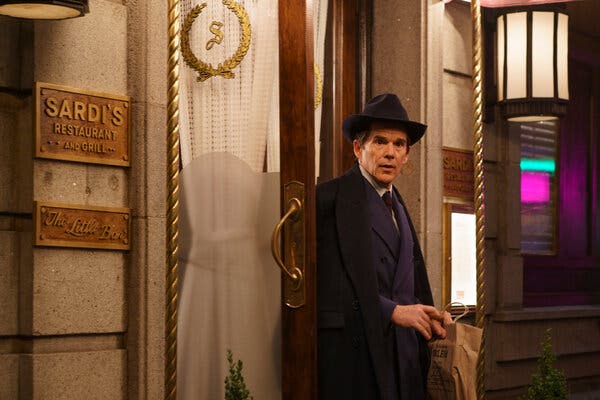Hollywood’s attempts to portray the brilliance of Broadway’s musical legends often fall flat, as evidenced by a historical trend of poorly received biopics. Films that aim to showcase the lives of iconic songwriters such as George Gershwin and Cole Porter frequently deliver distorted representations rather than illuminating insights. This genre, particularly prominent in the 1940s, has been criticized for its lack of authenticity and depth.
Among the latest entries in this genre is Richard Linklater‘s upcoming biopic, “Blue Moon,” featuring Ethan Hawke as Lorenz Hart. Hart, known for his collaborations with composer Richard Rodgers, was a complex figure whose life and work demand a more nuanced portrayal. The film aims to correct the narrative established by previous biopics, particularly the notorious 1948 film “Words and Music,” which has been widely criticized for its inaccuracies.
In “Words and Music,” Hart is depicted as a character far removed from his true self. Played by Mickey Rooney, Hart’s portrayal omits critical aspects of his identity, including his struggles with alcoholism and his sexuality. The film presents a sanitized version of his life, with fictional love interests and a romanticized view of his creative process. The real challenges faced by Hart—whose lyrics in songs like “My Funny Valentine” captured profound emotional truths—are glossed over, as the film suggests that great works flowed effortlessly from him.
The representation of Richard Rodgers in this biopic is equally misleading. In reality, Rodgers was known for his demanding nature and complex relationship with Hart. Instead, Tom Drake‘s portrayal shows him as indulgent and oblivious to the difficulties that characterized their collaboration. The film trivializes the genuine struggles that shaped the music of Broadway’s golden age.
Linklater’s “Blue Moon” seeks to present a more authentic narrative that honors Hart’s legacy without resorting to the clichés that have marred previous adaptations. Both Hawke and Linklater have expressed their disdain for the genre’s historical inaccuracies. Hawke described the earlier biopics as “fascinatingly, violently bad,” while Linklater referred to them as a “loser genre.” Their collaborative effort aims to shift the focus from sensationalism to the real artistry and struggles behind the music.
As audiences await the release of “Blue Moon,” it serves as a reminder of the complexities of musical genius and the importance of truthful storytelling in biographical cinema. The legacy of figures like Lorenz Hart deserves to be celebrated with the respect and depth they warrant, moving beyond the distractions of fabricated narratives. Ultimately, the hope is that this film will resonate more authentically with viewers and shine a light on the true spirit of Broadway’s creative history.







